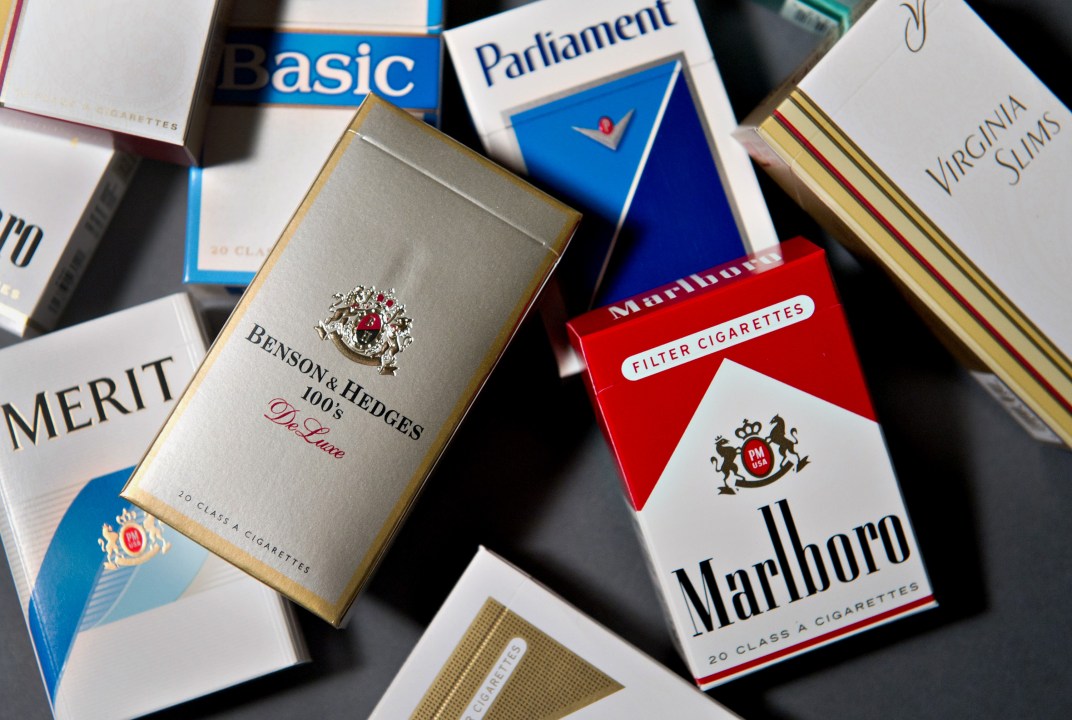The government has done a puzzling U-turn over its plan to introduce plain packaging for cigarettes. It had seemed determined to put the plan into effect, but suddenly announced last week that it had had second thoughts. It was no longer sure that this would in fact discourage the young from taking up smoking, so it planned to wait and look at the effects of a similar measure in Australia before taking any decision. This has provoked fury among the Liberal Democrats in the coalition, who accuse the Tory leadership of sacrificing the health of young people to the interests of the tobacco companies. And I must say it does seem a surprising development when it has been agreed for years that seductive packaging makes a significant contribution to the allure of cigarettes.
I have certainly always been susceptible to it. I secretly started smoking Benson & Hedges cigarettes when I was about 16, being much attracted by the red tins embossed with the royal coat-of-arms in which they then came. (Benson & Hedges was issued with a royal warrant as long ago as 1878, but this was revoked in 1999 because of ‘lack of demand in the royal households’.) After it stopped selling its cigarettes in tins (I see that an empty tin of the 1950s is now on sale on eBay for $45), I abandoned Benson & Hedges in favour of Senior Service, because I liked the crisp design of its white and navy-blue boxes, which were decorated with images of seagulls and a sailing ship in an oval frame. I also liked the slogan on the bottom, ‘The perfection of cigarette luxury’, which, although meaningless, made me feel that I was still in the better class of smokers.
I don’t know why tobacco companies liked to associate their products with matters nautical, but there were also ‘Player’s Navy Cut’, with an illustration on the packet of an old-fashioned sailor framed by a lifebelt, and Capstan cigarettes, named after the rotating drums used for pulling ropes and cables on sailing vessels. But there seems always to have been an urge to identify smoking with the very things it destroys — health and energy — as in sports sponsorship, when it was still legal, and the Marlboro cowboy. Nautical themes suggest fresh sea breezes and adventure.
For brief periods I have been influenced by the promotion of smoking’s other image as a sophisticated, rather bohemian activity suggesting Noël Coward in a silk dressing-gown with a long cigarette-holder between his fingers. At such times I would perhaps smoke a black Balkan Sobranie or a Du Maurier cigarette, named after the great Edwardian actor-manager Gerald du Maurier. But these were momentary affectations; and after I came to believe — probably wrongly — that filter-tipped cigarettes would be better for my health than plain ones, I took to smoking Rothmans King Size cigarettes, in part, I am sure, because of their smart white, blue and gold packets topped by a phoney coat-of-arms and a phoney crown. I also liked the way that they were associated in advertising with a mature airline pilot, representing that quality of calm decisiveness in which I am notably lacking.
Eventually, however, I decided I had better stop smoking altogether. This was 25 years ago when a doctor in Washington DC diagnosed emphysema and wrote me a letter saying, ‘It is imperative that you stop smoking now.’ I embarked on a six-week course with a group called Smoke Enders in which, among other measures designed to make quitting easier, I was told to wrap my cigarette packet in plain white paper so that its logo would be obscured. Already, then, in the 1980s the role played by packaging in nicotine addiction was widely recognised.
Even so, I am not in favour of a law imposing plain packaging on the tobacco companies. If cigarettes are still legally on sale in Britain, their manufacturers should not be prevented from competing freely with each other. But the reason given by the government for shelving its plan — waiting to see how things go in Australia — is unconvincing. What more does it expect to learn from the Australian experience? By giving such an implausible reason, it invites suspicion that it has bowed to pressure by the cigarette industry, especially as the lobbying firm of David Cameron’s elections strategist, Lynton Crosby, has a consultancy arrangement with the American tobacco giant Philip Morris (as, incidentally, Margaret Thatcher did after her retirement from politics). The government should never have committed itself to the idea in the first place.







Comments